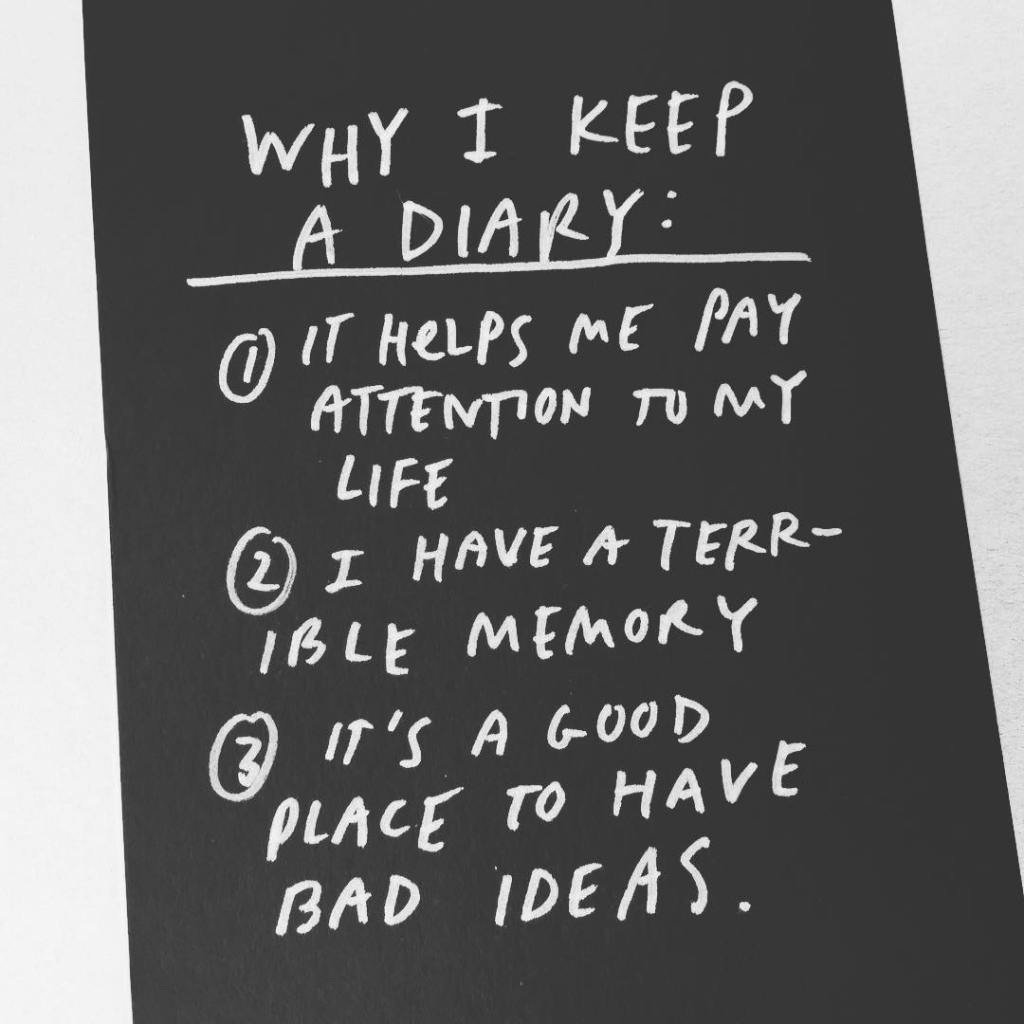Journaling for Financial Independence
I can shake off everything as I write; my sorrows disappear, my courage is reborn.
THE DIARY OF ANNE FRANK
The Financial Independence Retire Early movement may not be for everyone. But if there's one thing it can teach all of us, it's the art of journaling. Many FIRE bloggers write from a personal space, speaking openly about their hopes and fears and progress toward their financial goals.
Journaling can be a powerful tool for making better decisions, thinking creatively and building resilience. All of which can improve your chances for financial success. Which is why we should all do it.
As with any dream, financial independence (or retirement, if you'd like) starts as an abstraction.
Abstract thinking is a beautiful feature of the human mind. We do it when we use our imaginations. It is the process of conceptualizing our most important desires. We use it to build connections between the present and the future. It helps us create, find meaning, plan, problem solve and imagine our feelings if we succeed or fail.
Through abstract thinking , we engage in the future while taking a deeper look at the present.
The business world is filled with stories of abstract thoughts becoming concrete realities. The thought, What if we didn't have to rely on our own two legs or the health of a horse to get around, beget cars. And many more stories are being written today: What if we became an interplanetary species?
How can we turn our personal abstractions into concrete realities?
That is where journaling can serve an important role.
We so often make big decisions in life based on predictions of how we think we’ll feel in the future, or what we’ll want. Your past self is your best indicator of how you actually felt in similar situations. So it helps to have an accurate picture of your past.
Writing in a journal is a way to exercise our abstract thoughts.
A journal is where we can look at ourselves as an outside observer, as if turning ourselves into characters and guiding them to catharsis. We see ourselves from a distance, which allows us to see what really is rather than only what we want.
Psychologists call this psychological distance. This separation between ourselves and ours goal or challenges can make them more manageable. It helps us make decisions, think outside the box and control our emotions when things go wrong.
Through an abstract lens, we are less reactive and more insightful. We use our memories to make connections from past experiences to solve problems. This builds resiliency.
As it pertains to wealth and financial independence, journaling can be one of those illusive tools to combat our own cognitive biases. It is a way to stay focused and separate the signal from the noise.
A Dominican University of California study found that people were 33% more likely to achieve their goals when they wrote them down their goals and shared them and their progress with others.
As Henriette Anne Klauser, author of Write It Down, Make It Happen, writes: “Writing triggers the [reticular activating system], which in turn sends a signal to the cerebral cortex: ‘Wake up! Pay attention! Don’t miss this detail!’ Once you write down a goal, your brain will be working overtime to see you get it, and will alert you to the signs and signals that […] were there all along.”
Further research suggests handwriting improves learning, memory and idea generation.
So, if you want to achieve financial independence, you may want to start by grabbing a pen and a notebook.
Write about what financial independence means to you. Put down the steps you plan to take to get there. Openly write about your feelings -- how you feel now and what you expect to feel in the future. Then keep updating your progress, both the wins and the fails.
Happy journaling!
Friday Five
The empty language of Silicon Valley
The concept of disruption is a way for companies, the press or simply individuals to think about questions of continuity and discontinuity – what lasts and what doesn’t, what is genuinely new and what is just the next version of something older.
Often there’s more than one person in power, and it’s their capacity to collaborate that defines what’s possible.
Jonathan Clements on the simplicity of money -- and how hard that is
Figuring out what we should do with our dollars is typically straightforward: We should save regularly, diversify broadly, rebalance occasionally and so on. Instead, the tough part is getting ourselves to do what we intellectually know is right.
Books survive thrive in the time of Netflix
If binge-reading hasn’t fully supplanted binge-watching Netflix shows quite yet, the trend is certainly making strides. In August 2020, year-over-year sales of print books in the U.S. were up 13%, according to NPD BookScan, which tracks book sales across the U.S.
Friday Fiction (or shameless plug): My latest published flash fiction story, 99 Lives
“Why all the cats?” he asked.
I shrugged. It was the question everyone asked. Ninety-nine cats in a single-story house with an old, solitary woman and then, for some time, no one knows for sure how long, a corpse.




